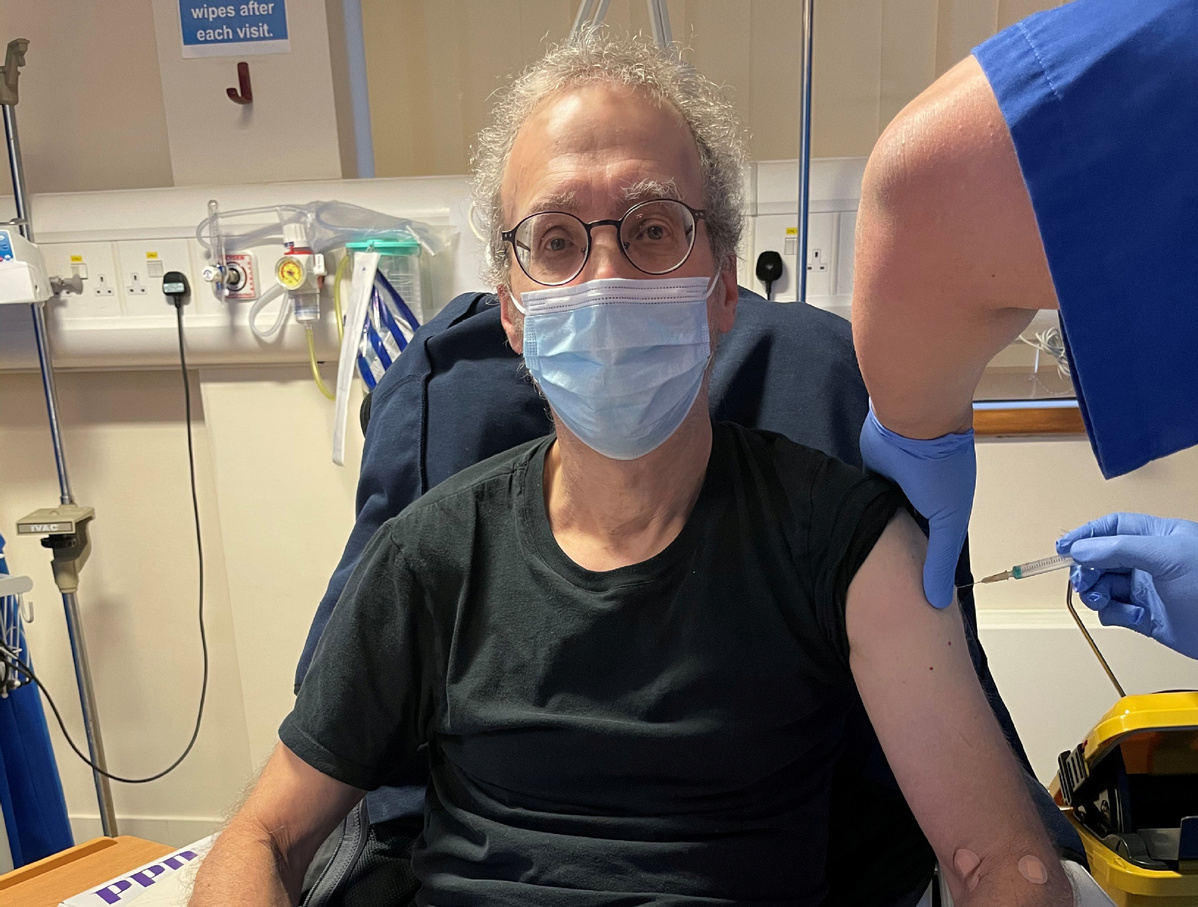Hesitancy over vaccine grows in UK
By ANGUS McNEICE in London | China Daily Global | Updated: 2020-12-02 09:17

Govts urged to build up trust of public to increase take-up of inoculation
People in several countries including the United Kingdom are increasingly hesitant over the prospect of receiving a COVID-19 inoculation, new data shows, despite a number of vaccine makers posting positive late stage trial results in recent weeks.
There is concern among health experts that growing vaccine skepticism could jeopardize efforts to achieve herd immunity. Multiple health departments are working on the assumption that a threshold of between 65 and 70 percent vaccine coverage will be necessary to control the spread of the novel coronavirus.
A new survey from London-based consultancy Kantar found that 75 percent of respondents in the UK viewed vaccination favorably, down from 78 percent in June. In the latest survey, 43 percent of respondents in the UK said they would "definitely" get a vaccination, while 32 percent said they would "probably" agree to treatment.
In the United States, 66 percent of respondents said they would consider treatment, down from 71 percent during the previous survey. In France, 54 percent favored vaccination, representing a four-point drop, while Germany remained unchanged at 67 percent. Of the five countries surveyed, only Italy gained points, increasing from 74 to 78 percent in favor of vaccination.
The latest survey was conducted after widely publicized interim trial results from Pfizer suggested 90 percent efficacy for its COVID-19 vaccine candidate. That figure was upped to 95 percent upon conclusion of the trial.
Kantar said the survey results present a "major challenge for governments around the world "aiming to control the COVID-19 pandemic. The most precipitous fall in vaccine confidence was in the US, where those saying they would "definitely" take a vaccine dropped from 47 percent in June to just 30 percent in late November.
Many respondents were concerned at the speed with which vaccines are being developed and produced, according to Kantar, while levels of trust in government correlated with attitudes toward vaccination.
"The findings are potentially alarming for governments around the world," Kantar said in a statement. "When less than half the population of a nation say they will 'definitely' take a vaccine, this implies that governments will have a huge task ahead of them in building up trust in any approved vaccine, and in mobilizing their nations to actually become inoculated."
Some nations have wrestled with the idea of a mandatory vaccine in order to achieve widespread coverage. In August, the Australian government shelved a proposal for a compulsory inoculation program following public a backlash. Serbia debated legislation that would see COVID-19 added to a list of diseases for which vaccines are mandatory, though last week the nation's health department said the move would not go ahead.
In mid-November, UK Health Secretary Matt Hancock said the government had "not ruled out "a compulsory vaccine, though on Monday he said there were no current plans to do so.
Some health experts have argued against the merits of a mandatory vaccination program, over fears that such a move would only serve to fan the flames in the so-called anti-vaxxer movement. But there is consensus in the medical community that at minimum governments should invest in education and messaging around the benefits of approved treatments.
























